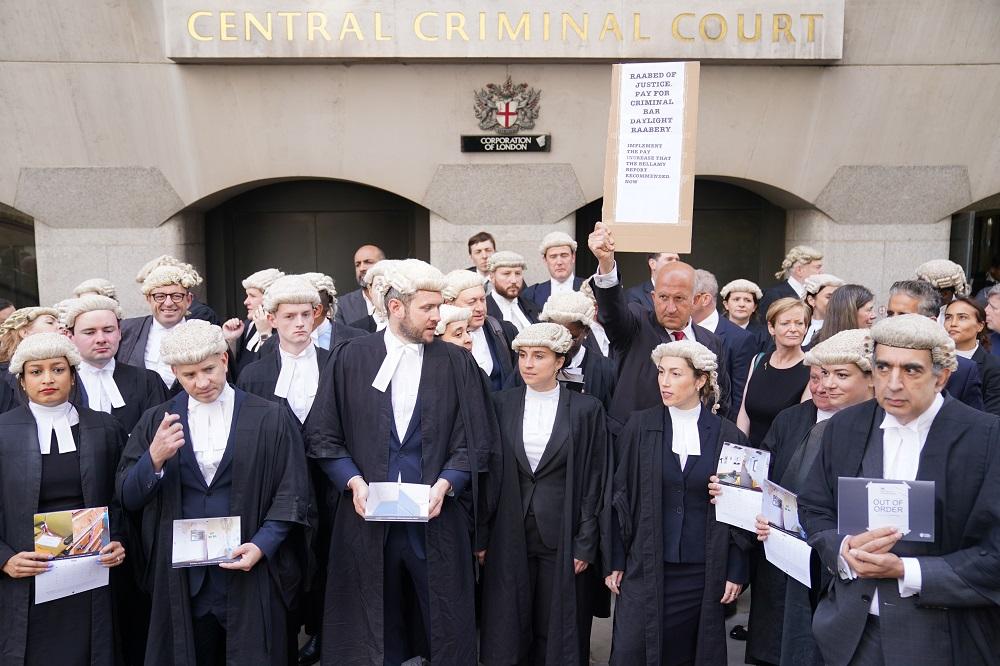One of the leaders of the union which has taken barristers in England and Wales out on strike has said the “money is there” for the government to solve the dispute and end the strike.
The Justice Secretary, Dominic Raab, has said barristers will receive a 15 percent pay rise for legally aided work from the end of September.





